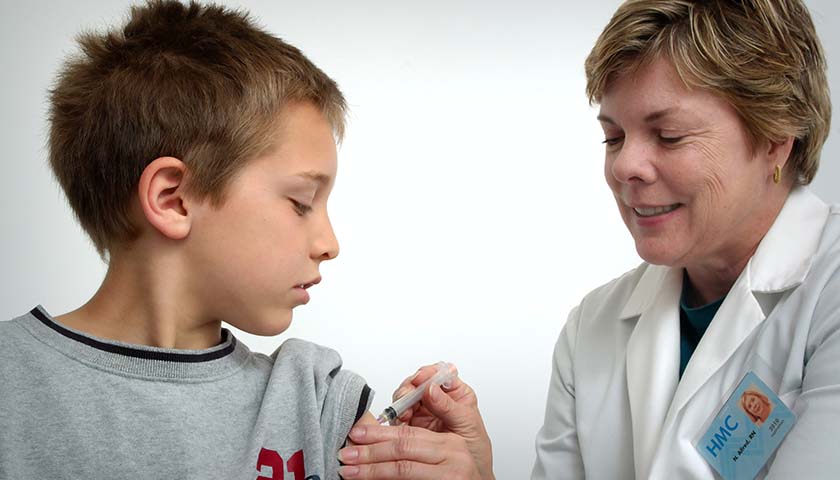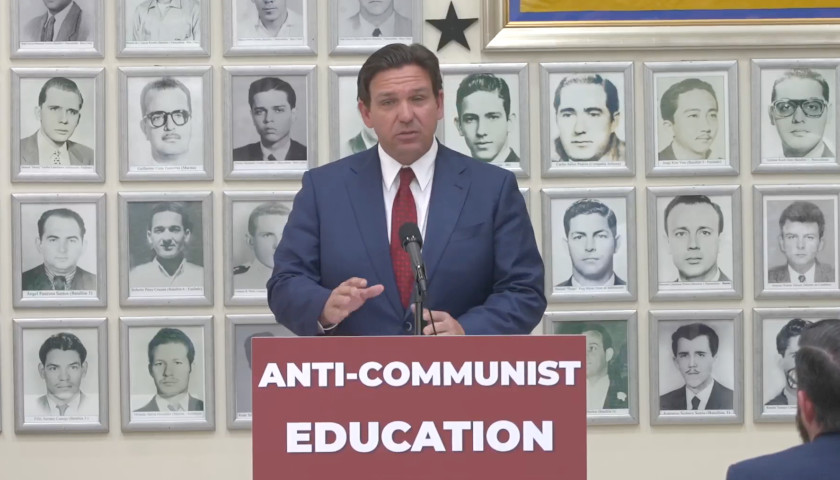Metro Nashville’s first day of administering COVID vaccinations to children ages 5 to 11 ended after it reached capacity Monday. Two locations offered the shots, Maplewood High School and Cane Ridge High School from 3 pm to 6:30 pm.
The Metro Public Health Department tweeted, “We are encouraged by the response at our drive-thru vaccination event at Maplewood High School. Our team is working as fast as they can to get to everyone as soon as possible. Everyone currently in line will be served, but no more vehicles will be joining the line tonight.”
We are encouraged by the response at our drive-thru vaccination event at Maplewood High School. Our team is working as fast as they can to get to everyone as soon as possible. Everyone currently in line will be served, but no more vehicles will be joining the line tonight. pic.twitter.com/esXBM9hFQp
— NashvilleHealth (@NashvilleHealth) November 8, 2021
Similarly, the Cane Ridge location reached capacity about 40 minutes before closing.
The Metro Public Health Department moved their second day offering free vaccines indoors at McGavock High School and Hillsboro High School. They tweeted, “We are excited about the turnout at our COVID-19 vaccine event at Hillsboro High School, and appreciate everyone’s patience. We will be here until 6:30pm and ask those in line to listen closely for their number so we can vaccinate as efficiently as possible.”
The Metro Public Health Department has four more days scheduled for first dose vaccinations, and six for the second dose three weeks after.
Parents were required to be present for children to receive the vaccine. Metro Schools said on its COVID-19 page that it ensures “proper parental decision-making authority and to assist with the child during the administration of the vaccine.”
The CDC reported that children under 12 make up 6.8 percent of the seven-day average of daily cases reported. In Davidson County, the COVID-19 dashboard lists a single death of a child under 17 years of age since recordkeeping began. The record does not list the precise age of the child, only that the death was reported on March 12, 2021.
The federal Vaccine Adverse Event Reporting System (VAERS) reported that from September 27, 2021 there were 569,294 accounts of an adverse reaction associated with COVID-19 vaccination in the U.S.
Of the possible side effects reported with the COVID vaccine, the most common in the United States are temperature-related issues (226,457), skin problems (174,793), and a category that includes movement, muscle, nerve, neuropathy, numbness, and paralysis (164,200).
More unusually, vaccine recipients have reported mood or memory problems (31,720); and studies have shown that more than 1,200 cases of heart inflammation (myocarditis or pericarditis) in teenagers were reported after Pfizer and Moderna COVID-19 vaccinations. More than half of the cases were reported after the second dose, and most of the negative side effects are reported by men and boys under age 30.
However, in August, Sharyl Attkisson reported that research led by Dr. George Diaz from Providence Regional Medical Center in Everett, Washington found the incidences of myocarditis and pericarditis are more than five times more common than CDC reported.
Meanwhile, the University of Wisconsin School of Medicine and Public Health, along with several other medical researchers, are expanding its push to vaccinate Americans with new studies announced recently that will test the COVID-19 vaccines in infants and toddlers from 6 months to 5 years old.
– – –
Morgan Nicole Veysey is a reporter for The Tennessee Star and The Star News Network. Follow her on Twitter. Email tips to [email protected]








